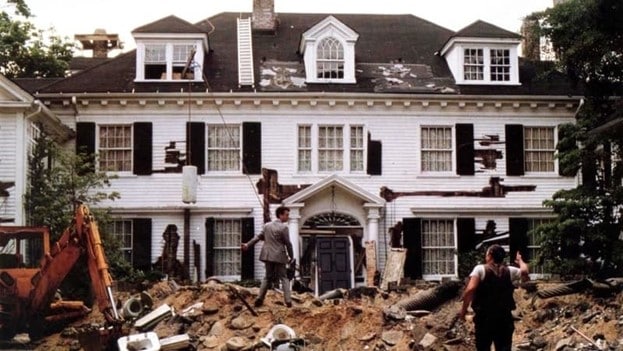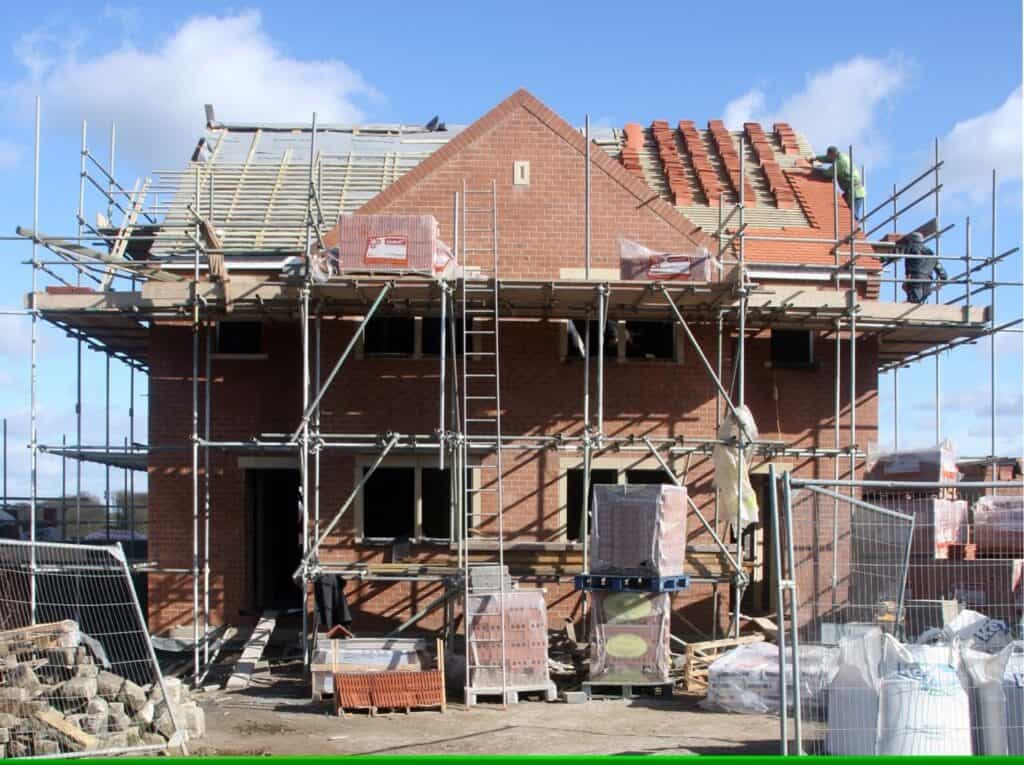
The decision to seek building contractors near me or do it yourself when it comes to construction contracting projects is a much more common question that many homeowners ask themselves when they are considering a major home remodeling or new home construction project.
The primary motivation for taking these risks is MONEY. A general contractor will add 20% – 30% to the entire price of the project. DIY owners commonly believe that they can achieve the same performance goals as a building contractor for substantially less overall cost.
On a major project value of more than $100,000+ this can add up to a significant amount of money and for lesser amounts, that gross margin may increase on certain kind of projects.
Although to properly answer the question, should I search for building contractors near me or do it myself general contracting for my construction project, there are many factors to consider and evaluate.
You should approach this topic from the perspective of what skills, responsibilities and task are required to successfully perform a professional general contractor’s project duties.
We will have a discussion regarding these many attributes and project business risk factors that are naturally associated with a residential construction project.
If you are risk adverse, then your decision will be relatively easy, because building contracting is a highly risky business.
If you believe you have the experience and the skills to achieve your construction project goals than this article is for you.
Learn the most effective evaluation methods to evaluate building contractors near me or DIY contracting
When searching for building contractors near me, the DIY owner should focus their evaluation on 4 specific areas of concern;
- The Building Contractors Skills Required
- The Building Contractors Responsibilities
- Project Problem Solving Abilities
- Evaluating the Pros & Cons of Hiring Building Contractors Near Me
The Building Contractor Skills Required
- Competency in Construction Fundamentals – General contracting construction knowledge at a minimum is required to understand the right way and the wrong way of home remodeling or new home construction.
It takes years of experience to grasp the fundamentals of each construction trade contractor. As with life, we learn from our mistakes.
Unless you have learned from your own hard knocks, an owner serving as their own general contractor will be learning at the expense of the construction budget and any profit that was projected.
- Capable Business Management Skills – General contracting is about managing the business and construction activities of a project. This includes the onsite construction management activities as well as the offsite business activities.
The offsite matters can include the financial, contract, and procurement activities. Whereas the onsite business management tasks include scheduling, quality control and problem resolution.
- Financial Competency – The financial competency is a highly underestimated skill requirement of general contracting.
Building contractors must not only financially bid the project but must manage the cash flow properly to meet the project obligations in a timely manner.
The importance of this skill is demonstrated each year as hundreds of contractors go bankrupt.
- Project Management Skills – The project management skills include business management skills, but also include very unique construction management skills, unlike any other industry business management.
These skills include the working knowledge to understand blueprints, estimating practices, material properties and interpreting national building codes.
They also include the onsite management skills to schedule, inspect compliance work and resolve technical mishaps when they occur.
The Building Contractors Responsibilities
- Build to the Construction Documents –The number one responsibility of a general contractor is to build to the construction documents unless there is a conflict or error.
Plan drawings are developed by trained architects and designers who have been educated to properly understand the building codes and natural human standards of use.
The building codes are different for home renovations than they are for new ground up construction.
Much like any other business, people make mistakes. They transpose numbers or misalign symmetrical architectural features.
It is the duty of the project manager to identify these mistakes and make the required adjustments before it’s too late in the construction process.
- Successfully Bid and Win Project Awards – There are many ways to prepare bid amounts for projects.
Depending on the complication of the project, most building contractors will dissect the plans to acquire the quantities of materials and required man hours to build out a project in properly preparing a construction estimate.
Sometimes they will get the subcontractors to participate in providing fixed prices. At the end of this process, the general contractor is responsible to make the bid produce a specified profit. If he makes a mistake in the bid, it comes out of the profits.
Thinking in these terms, it not hard to understand how challenging this could be for someone that has limited experience.
- Negotiate and Hire all Subcontractors & Vendors – There is much more to this then asking a vendor or subcontractor to lower their price.
When you receive bids from subcontractors the prices are often all over the spectrum.
A home builder or remodeler must have the ability to discuss the scope of work in detail in order to properly vet the sub.
By understanding the scope and required man hours, the general contractor can determine if the subcontractor can perform the required work without going broke during the process.
- Resolve all Problems and Conflicts – Resolving conflict is a daily exercise on a project. If it’s not a problem with a subcontractor, it’s a problem the plans.
If it’s not a problem with the scope of work, it’s a problem with the schedule. This is not baseball where if you can get .333 % of your decisions right and you will be in the hall of fame.
You are required to get .90% correct or someone is going to lose money or get very upset.
- Quality Control – Quality workmanship begins with the hiring of a competent craftsmen. It is an attitude that prideful contractors possess.
Quality work seldom comes at the cheapest bid. Quality is also a product of the previous workmanship that is left for a tradesman to build to.
In order to maintain a consistent quality product, the general contractor is required to conduct quality assurance inspections at each phase of construction.
If these are not done at the proper times, a previous problem will get covered and escalate in magnitude.
By the time you correct it, you are required to dismantle finished work and reassemble it at someone’s expense.
Project Problem Solving Abilities
Every project has its unique challenges. A seasoned building contractor resolves the most complex issues and makes it look easy.
This is a developed skill over many years of experience facing hundreds of problems. The more adversity that a general contractor has encountered in their history, the more likely they are to resolve complex issues without incident.
It is the ability to hone in on something wrong quickly that separates pros from novices.
These project problems take many forms. They can be technical or they can be people problems.
During the home construction process there are 100,000’s of pieces that are assembled on site.
Some built on site and others brought finished to the site. There are assurance standards and procedures to avoid these practices from causing utter conflict.
Take custom home builders, without this procedure the offsite products built would not fit to the conditions constructed.
The ability to correct or terminate a subcontractor is also a fact of life in the business. If not handled properly, the matter can escalate into property liens, project sabotage or even violence.
The resolution of poor subcontractor performance is a diplomatic process that ends the relationship legally, swiftly and without an unexpected incident.
Evaluating the Pros & Cons of Hiring Building Contractors Near Me
Pro’s of You Hiring a Professional Building Contractor
- You will have better ultimate control over the project cost
- You will maintain better control of project risk
- You will transfer the risk of project errors to the expense to the building contractor
- You will have a trained expert as a trusted adviser through the project
- Project will likely to take less overall time
- GC responsible for contracts and lien releases
- Much easier for owner to obtain financing from lender
- You would have much more time for other concerns
Con’s of You Hiring a Professional Building Contractor
- Will cost you between 20% – 30% more for construction contracting
- If you hire the wrong building contractors near me it can be a disaster
- You lose the satisfaction of completing your own project
Conclusion
There are projects that just do not make sense to hire a general contractor to execute.
For instance, replacing a roof or repainting your house do not warrant hiring a general contractor.
In most situations it is not necessary to hire a building contractor to replace home products such as appliances, air conditioners or hot water heaters.
These are projects that most inexperienced homeowners can contract directly without much consequence.
The hiring of a general contractor for small repairs and painting is pointless. As a rule of thumb, the more complicated the project the more likely you should hire a seasoned professional building contractor.
Although you will pay more in building contractor fees, some of these GC fees may be offset in material discounts, better subcontractor pricing and lesser interest expense created by the building contractor business experience.
These benefits are not usually available if you are self-servicing general contracting services.
A case can also be made for the building contractors fees actually being a more cost-effective solution then an owner served general contracting.
When you consider the expense associated with major phases of the project requiring to be reworked due to errors or omissions, the cost of rebuilding can equal or be greater than the fees for serious mistakes.













